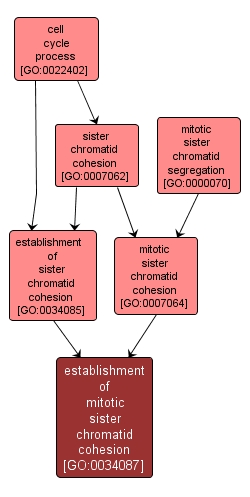GO TERM SUMMARY
|
| Name: |
establishment of mitotic sister chromatid cohesion |
| Acc: |
GO:0034087 |
| Aspect: |
Biological Process |
| Desc: |
The process by which the sister chromatids of a replicated chromosome become joined along the entire length of the chromosome during S phase during a mitotic cell cycle. |
|

|
INTERACTIVE GO GRAPH
|














